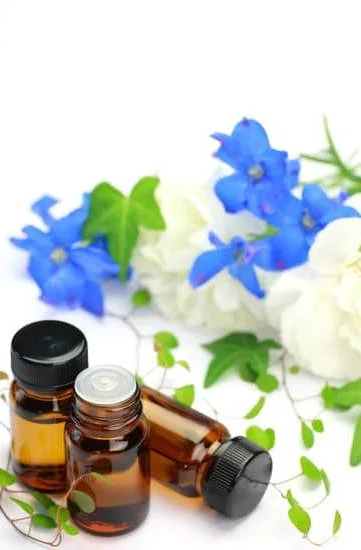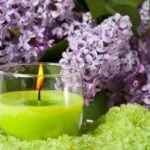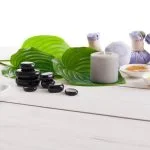Can you use aromatherapy oils on your face? Aromatherapy oils have gained popularity for their potential benefits for both physical and mental well-being. In this article, we will explore the use of aromatherapy oils specifically for the facial skin. Understanding the properties and safe application of these oils is crucial for reaping their benefits while minimizing any potential risks.
Aromatherapy oils, also known as essential oils, are highly concentrated plant extracts that are known for their aromatic and therapeutic properties. When used topically, these oils have the potential to nourish and improve the condition of the skin. With a wide range of aromatherapy oils available, each with unique properties, it’s important to understand how to choose the right oil for your skin type and concerns.
Before incorporating aromatherapy oils into your skincare routine, it is essential to perform a patch test to assess any potential allergic reactions or irritations. This step is crucial in ensuring the safe usage of these potent oils on your facial skin. Additionally, knowing how to safely dilute and apply these oils is key in avoiding adverse effects and maximizing their beneficial effects on the skin.
Different Types of Aromatherapy Oils and Their Properties
Aromatherapy oils have gained popularity in the skincare world due to their natural and beneficial properties for the skin. There are various types of aromatherapy oils, each with its own unique properties and benefits for the skin. These oils are derived from plants, flowers, and herbs through a process of steam distillation or cold pressing, resulting in potent and concentrated substances that offer a wide range of skincare benefits.
Lavender Oil
Lavender oil is one of the most popular aromatherapy oils known for its calming and soothing properties. It is often used to alleviate skin irritation, redness, and inflammation. Lavender oil is also believed to have antibacterial and antifungal properties, making it effective in treating acne and other skin conditions.
Tea Tree Oil
Tea tree oil is renowned for its powerful antiseptic and antimicrobial properties. This essential oil is commonly used to treat acne-prone skin due to its ability to combat bacteria and reduce inflammation. Additionally, tea tree oil can help regulate oil production, making it suitable for those with oily or combination skin.
Rosehip Seed Oil
Rosehip seed oil is rich in vitamins A and C, as well as essential fatty acids. It is known for its ability to deeply hydrate the skin without clogging pores. Rosehip seed oil can also help fade scars, hyperpigmentation, and fine lines while improving overall skin tone and texture.
When it comes to incorporating aromatherapy oils into your skincare routine, it’s crucial to consider your specific skin type and concerns. Each type of aromatherapy oil offers a unique set of properties that cater to different skincare needs. Understanding the characteristics of these oils can help you choose the right ones for your face in order to maximize their benefits while minimizing potential risks.
The Importance of Patch Testing Aromatherapy Oils on Your Skin
When incorporating aromatherapy oils into your skincare routine, it is crucial to understand the importance of patch testing these oils on your skin. Patch testing helps determine if you have any adverse reactions or sensitivities to specific oils before using them on your face regularly. This step can prevent potential irritation, redness, or allergic reactions that can occur when using aromatherapy oils directly on your skin without prior testing.
To patch test an aromatherapy oil, follow these simple steps:
- Choose a small area on your inner forearm or the side of your neck to apply the oil.
- Dilute the essential oil with a carrier oil, such as jojoba or almond oil, to minimize the risk of irritation.
- Apply a small amount of the diluted oil to the chosen area and cover it with a bandage or adhesive tape.
- Leave the patch on for 24 hours and monitor for any signs of redness, itching, or discomfort.
Patch testing can help you determine which aromatherapy oils are suitable for your skin type and which ones may cause adverse reactions. It is important to note that some individuals may be more sensitive to certain essential oils than others, so conducting a patch test is a crucial step in ensuring the safety and efficacy of using aromatherapy oils on your face.
In addition to patch testing, it is also essential to consider the quality and purity of the aromatherapy oils you use on your face. Look for high-quality, organic essential oils from reputable sources to ensure that you are using pure and safe products on your skin. By taking these precautions, you can use aromatherapy oils on your face safely and confidently, reaping their numerous benefits without any negative effects.
How to Safely Use Aromatherapy Oils on Your Face
Aromatherapy oils have been used for centuries to promote overall well-being and skincare. When it comes to using aromatherapy oils on your face, it’s essential to do so safely and effectively. While these natural oils can provide numerous benefits for the skin, they can also potentially cause irritation or allergic reactions if not used properly.
Before using any aromatherapy oils on your face, it is crucial to perform a patch test on a small area of skin to ensure that you do not have an adverse reaction. This involves applying a diluted amount of the oil to your skin and monitoring for any redness, itching, or irritation over the next 24 hours. If no negative effects occur, you can proceed with using the oil more extensively on your facial skin.
When using aromatherapy oils on your face, always dilute them with a carrier oil such as jojoba, coconut, or almond oil to reduce the risk of irritation. This is especially important for individuals with sensitive skin. Additionally, it’s best to avoid applying undiluted essential oils directly to the face as this can lead to discomfort and adverse reactions in some cases.
| Important Points | Details |
|---|---|
| Patch Testing | Perform a patch test before applying any aromatherapy oils directly to your face. |
| Dilution | Always dilute essential oils with a carrier oil before applying them to facial skin. |
| Undiluted Use | Avoid using undiluted essential oils directly on the face to prevent adverse reactions. |
Benefits of Using Aromatherapy Oils for Facial Skin
Aromatherapy oils have been used for centuries to promote overall well-being and to address specific skin concerns. When it comes to the facial skin, aromatherapy oils can be a beneficial addition to your skincare routine. These essential oils are derived from various plants and are known for their soothing, nourishing, and rejuvenating properties.
Some of the most popular aromatherapy oils for facial skin include lavender, tea tree, rosehip, chamomile, and jojoba oil. Each of these oils has unique properties that can benefit the skin in different ways.
For example, lavender oil is known for its calming and anti-inflammatory effects, making it ideal for those with sensitive or acne-prone skin. On the other hand, rosehip oil is rich in antioxidants and essential fatty acids that can help improve overall skin tone and texture.
Before incorporating aromatherapy oils into your skincare routine, it is important to perform a patch test to ensure that you do not have any adverse reactions. This involves applying a small amount of diluted oil to a small area of your skin and waiting 24-48 hours to see if any irritation occurs. This step is crucial in preventing potential allergic reactions or sensitivities.
It’s also important to note that while aromatherapy oils can offer many benefits for the facial skin, they should always be used with caution and in moderation. Some essential oils are highly potent and can irritate the skin if used undiluted or in excessive amounts. Additionally, certain individuals may have pre-existing conditions or sensitivities that make them more susceptible to adverse reactions from these oils.
| Aromatherapy Oil | Properties |
|---|---|
| Lavender | Calming and anti-inflammatory |
| Tea Tree | Antibacterial and clarifying |
| Rosehip | Rich in antioxidants and essential fatty acids |
Potential Risks and Side Effects of Using Aromatherapy Oils on Your Face
Using aromatherapy oils on your face can provide numerous benefits for your skin, such as hydration, improved texture, and a natural glow. However, it is essential to be aware of the potential risks and side effects that may arise from improper use of these oils. Understanding these risks can help you make informed decisions about incorporating aromatherapy oils into your skincare routine.
Skin Irritation and Sensitivity
One of the most common risks associated with using aromatherapy oils on your face is the potential for skin irritation and sensitivity. Since essential oils are highly concentrated plant extracts, they have the potential to cause allergic reactions or irritate the skin if not properly diluted. It’s important to conduct a patch test before applying any new aromatherapy oil to your face to determine if you have any adverse reactions.
Photosensitivity
Certain aromatherapy oils can make your skin more sensitive to sunlight, leading to an increased risk of sunburn or skin damage. Citrus oils, such as lemon or bergamot, are known to have phototoxic effects when applied to the skin and exposed to UV light. If you choose to use these oils on your face, it’s crucial to limit sun exposure and always wear sunscreen during the day.
Risk of Contact Dermatitis
Another potential risk of using aromatherapy oils on your face is the development of contact dermatitis. This condition occurs when the skin comes into direct contact with an irritant or allergen, resulting in redness, swelling, and itching. To minimize this risk, it’s important to select high-quality, pure essential oils and ensure they are properly diluted before applying them to your skin.
By being aware of these potential risks and taking precautions when using aromatherapy oils on your face, you can enjoy their many benefits while minimizing the likelihood of experiencing adverse effects. Always consult with a skincare professional or dermatologist before incorporating new products into your skincare routine, especially if you have sensitive or reactive skin.
Tips for Choosing the Right Aromatherapy Oils for Your Skin Type
When it comes to choosing the right aromatherapy oils for your skin type, it’s important to consider the specific properties and benefits of each oil. Here are some tips to help you select the best aromatherapy oils for your skin:
1. Understand Your Skin Type: Different skin types have different needs, so it’s important to first identify whether you have oily, dry, combination, or sensitive skin. This will help you narrow down which aromatherapy oils are best suited for your specific needs.
2. Research Aromatherapy Oils: Take the time to research the properties and benefits of different aromatherapy oils. For example, lavender oil is known for its calming and soothing properties, making it ideal for sensitive or dry skin, while tea tree oil is great for oily and acne-prone skin due to its antibacterial and anti-inflammatory properties.
3. Patch Test New Oils: Before applying any new aromatherapy oil to your face, it’s crucial to do a patch test on a small area of your skin to check for any allergic reactions or sensitivity. This can help prevent any adverse effects when using the oil on your entire face.
4. Consider Blending Oils: Depending on your skin’s needs, you may benefit from blending different aromatherapy oils together. For example, if you have combination skin, a blend of jojoba oil (for moisturizing) and geranium oil (for balancing) could be beneficial.
5. Consult with a Professional: If you’re unsure about which aromatherapy oils are best for your skin type, consider consulting with a qualified aromatherapist or skincare professional who can provide personalized recommendations based on your individual needs.
By following these tips when choosing aromatherapy oils for your face, you can ensure that you select the right oils for your specific skin type and enjoy their numerous benefits without experiencing any adverse effects. Can you use aromatherapy oils on your face? Absolutely – as long as you make informed choices based on your individual skincare needs and preferences.
Conclusion
In conclusion, the use of aromatherapy oils on the face is a subject that has been widely debated among skincare enthusiasts and professionals. While there are many benefits to using these oils, such as improved skin hydration, reduced inflammation, and soothing aromas, it is important to proceed with caution.
Before incorporating any new aromatherapy oil into your skincare routine, it is imperative to conduct a patch test to ensure that you do not have an adverse reaction. This simple step can prevent potential issues such as irritation, allergic reactions, or sensitivities.
When using aromatherapy oils on your face, it is crucial to prioritize safety and proper usage. Diluting the oils with a carrier oil and following recommended guidelines for application can help minimize the risk of skin irritation. Additionally, choosing high-quality, pure essential oils from reputable sources can further reduce potential adverse effects. By taking these precautions, you can enjoy the myriad of benefits that aromatherapy oils
In essence, while the decision to use aromatherapy oils on your face ultimately rests upon personal preference and skin tolerance, it is important to approach their usage conscientiously. With careful selection and proper application techniques, incorporating aromatherapy oils into your skincare routine can be safe and effective for promoting healthy-looking skin. Always be mindful of any potential risks and consult with a skincare professional if you have any concerns or reservations about integrating these oils into your daily regimen.
Frequently Asked Questions
What Essential Oils Should You Not Put on Your Face?
It is generally recommended to avoid using essential oils like cinnamon, clove, and lemongrass on the face due to their potential to cause skin irritation or sensitization. These oils are known for their strong and potentially irritating properties.
Can You Use Aromatherapy Oils Topically?
Aromatherapy oils can be used topically, but it’s essential to dilute them with a carrier oil like jojoba or coconut oil before applying them to the skin. This helps prevent any potential sensitivity or irritation, especially for those with sensitive skin.
What Is Aromatherapy for Face?
Aromatherapy for the face involves using essential oils in a gentle and diluted manner to promote skin health and emotional well-being. This can include incorporating oils like lavender, chamomile, and rosehip into skincare routines or facial massages to nourish the skin and provide relaxation benefits.

Are you looking for a natural way to improve your health and wellbeing?
If so, aromatherapy may be the answer for you.





